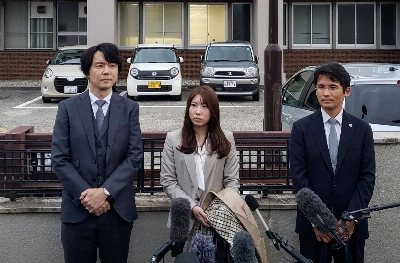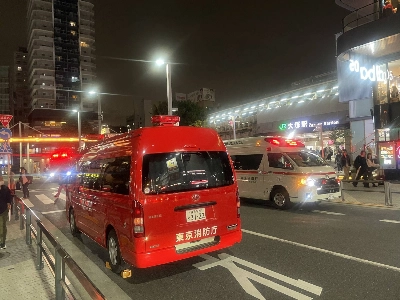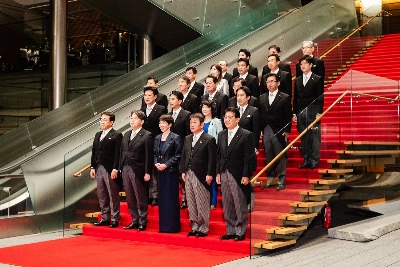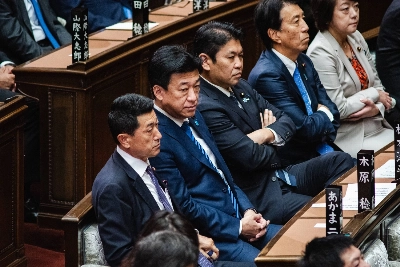OSAKA -- The future of Kansai Electric Power Co.'s plans to use mixed uranium-plutonium oxide fuel is now in doubt following a decision late last year to cancel an order of French-made MOX fuel as well as uncertainty over when, and under what security conditions, a shipment of British-made MOX fuel could be sent back to England.
On Dec. 26, Kepco officials announced they would cancel the order for production of 16 MOX fuel assemblies that were being manufactured by the French nuclear consortium Cogema.
While Kepco officials insisted the fuel was safe, they had little choice because the Ministry of Economy, Trade and Industry refused to allow the fuel to be imported.
"We did what we needed to do and tried to convince the government the fuel was safe. But there was nothing else to do other than cancel our MOX order," Kepco Chairman Kazuo Sato said at a news conference in December.
METI said the MOX fuel produced at Cogema did not meet the requirements of the July 2000 revision to the Imported Fuel Assemblies Inspection Law. The revision obliges a power company to conduct quality control inspections at the factory where MOX fuel is being produced, but Kepco had not carried out any inspections on the portion of the fuel that had been made before the July 2000 revision, according to METI.
Antinuclear groups say their own investigation of the Cogema plant also revealed questionable quality control standards.
"There are questions about the composition of the MOX fuel. Quality-control tests appear to show that the uranium and plutonium have not been as thoroughly mixed as they should have been. Large clumps of plutonium in the mix would mean the fuel could burn unevenly," said Stephen Ready, a Canadian activist with Green Action Kyoto.
While Kepco said that it followed the correct legal procedures when it signed a contract with Cogema for production of the MOX fuel in late 1999, METI officials were reportedly furious that Kepco notified the ministry only after the order had been placed.
The decision by Kepco to cancel the order of French-made MOX fuel is expected to cost at least 6 billion yen and comes at a particularly bad time for the utility, which is attempting to return to England a separate shipment of MOX fuel that arrived in Takahama, Fukui Prefecture, in 1999.
Prior to arrival of that fuel, which contains nearly 255 kg of plutonium, antinuclear groups in Britain, France and Japan had warned that something was wrong with the data, despite Kepco's assurances that the fuel was safe.
The company agreed not to use that fuel only after workers at the British Nuclear Fuels Ltd. plant in Sellefield, England, where it was made admitted they had falsified quality control data related to its production. The admissions came only days after the fuel arrived in Takahama.
Under the terms of a Japan-U.S. agreement on nuclear energy, the U.S. must first grant Japan permission to return the fuel, which, though processed by the British, originated in the United States. The review process is currently under way in the U.S., and Kepco hopes that final approval will be given within the next few months.
Final approval, however, is conditional on an assessment of terrorism threats to the ship in transit, and both U.S. and Kepco officials say security will be much tighter this time than in 1999, when only a few armed guards were aboard the ship, none whom had been trained in shipboard counterterrorism methods.
"We hope to have the fuel returned to England sometime in 2002. We're discussing security measures for the ship at the moment, but they will be much stricter than the security measures taken in 1999 when the ship came over," Kepco spokesman Akira Yamamoto said.
Just how strict those security measures will be is uncertain. Kepco officials admit that the U.S. will call for the tightest possible security, given the terrorist attacks on New York and the Pentagon in September, but say the final details have yet to be worked out. They would not comment on media reports that the security precautions could mean a delay until December or even later.
Even after the fuel is returned, it is questionable whether METI will grant permission for Kepco to again import BNFL fuel after that. Some METI officials have indicated they will not approve any more BNFL-made fuel because of "safety concerns." The company itself is bankrupt and may be shut down.



















With your current subscription plan you can comment on stories. However, before writing your first comment, please create a display name in the Profile section of your subscriber account page.